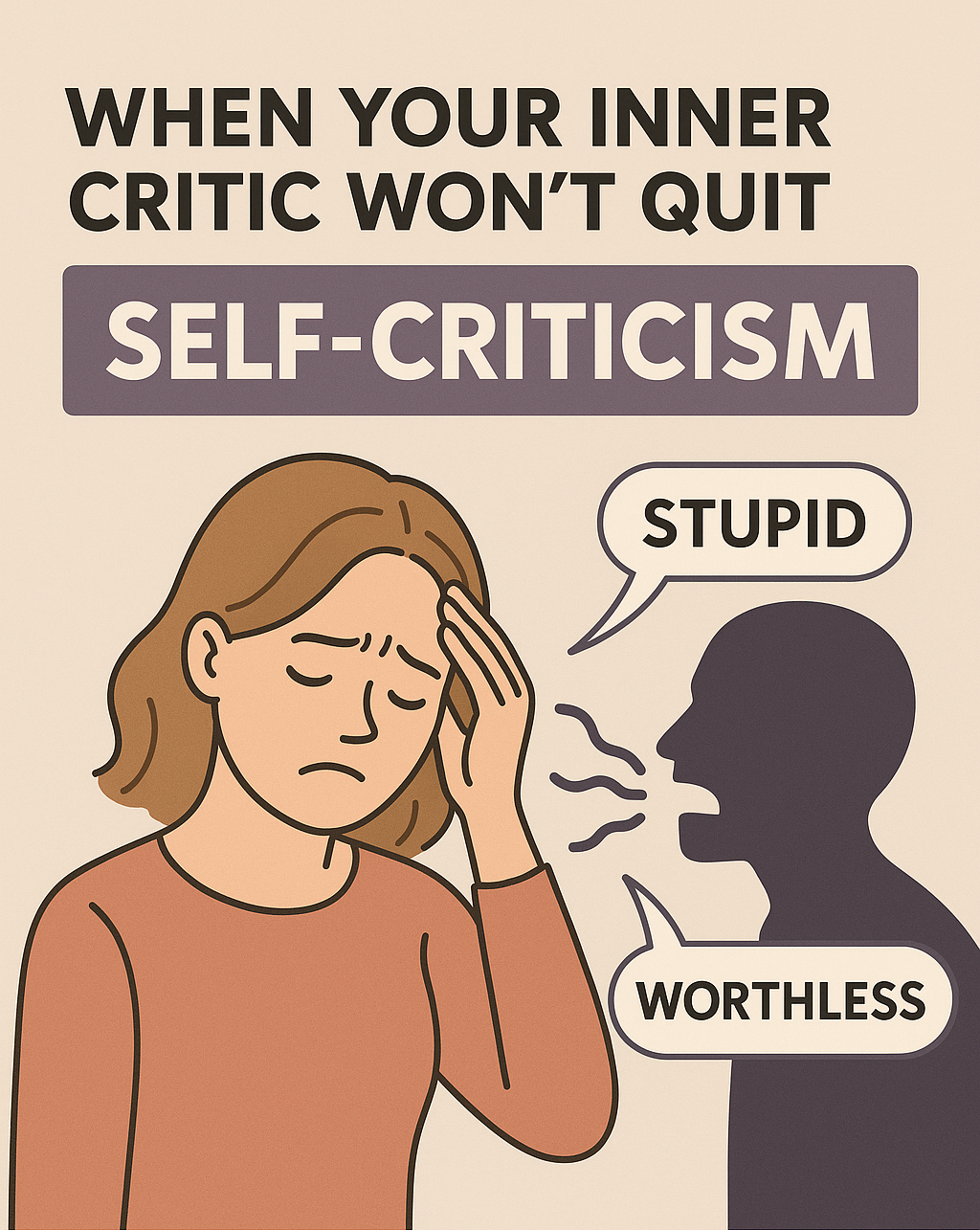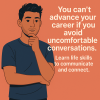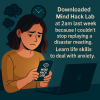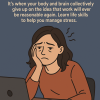
That 3 AM Voice That Won't Stop Listing Everything Wrong With You
When your brain decides bedtime is the perfect moment for a performance review of your entire life
I'm writing this at 2:47 AM because I can't sleep. Not because of caffeine or stress or any reasonable explanation. No, I'm awake because my brain just remembered that awkward laugh I did in a Teams meeting last Tuesday. You know the one—where you laugh a beat too late and it comes out weird and everyone definitely noticed.
And now we're off to the races.
My inner critic is having a field day. It's moved on from the laugh to that email where I accidentally wrote "I'll defiantly get that to you" instead of "definitely." Then to the time I waved back at someone who wasn't actually waving at me. Then that presentation where my voice cracked on slide 3.
Suddenly I'm convinced everyone at work thinks I'm incompetent. That my boss regrets hiring me. That I'll never get promoted because who promotes someone who can't even laugh normally?
The thing is, this isn't just about confidence. When I finally dragged myself to try Mind Hack Lab's Confidence & Self-Worth module at 3 in the morning (because when else?), I learned something weird. This is actually about missing life skills. Skills nobody teaches you, like how to stop your brain from treating every small mistake like evidence for a criminal trial against your entire existence.
The Real Problem With Self-Doubt at Work
Here's what kills me—I'm actually decent at my job. Like, objectively. I hit my targets. I solve problems. People generally seem to like working with me. But my inner critic doesn't care about performance reviews or completed projects. It only keeps receipts for mistakes.
And it's creative about it too. It's not just "you screwed up." It's:
"Everyone saw you fumble with the screen share"
"Your ideas sound stupid when you say them out loud"
"People are just being polite when they say 'good job'"
"You type too loud and it annoys everyone"
Actually, wait—do I type too loud? See, this is what I mean. Even writing about my inner critic makes it worse.
Why CBT and ACT Actually Help (When You Strip Away the Therapy-Speak)
So I tried some of those evidence-based techniques everyone mentions. CBT teaches you that thoughts aren't facts, which sounds obvious until you're lying in bed absolutely certain that everyone secretly thinks you're incompetent.
The ACT stuff was weirder but more helpful. Instead of arguing with my inner critic (which never works—it's like wrestling with smoke), you just... notice it. Like "Oh hey, brain. I see you're doing that thing again where we catastrophize about one typo. Cool. Anyway..."
Mind Hack Lab taught me this technique called If-Then Meeting Plan that actually works. When my brain starts the "everyone thinks you're an idiot" spiral before a meeting, I have a specific plan ready. Sounds simple but having an actual technique beats lying awake rehearsing conversations that will never happen.
The Life Skills School Forgot to Teach
What I really needed wasn't more confidence—it was specific skills for when my brain turns against me:
Emotional Granularity
Sounds fancy but it just means getting specific about feelings. "I'm garbage" becomes "I'm embarrassed about that email typo." One is a life sentence, the other is a moment that will pass. Big difference at 3 AM.
The 2-Minute Reframe
From the Stress Mastery module saved my sanity. When my inner critic starts its greatest hits compilation, I have exactly two minutes to acknowledge it and then move on. Not forever—just two minutes. Turns out my attention span for self-hatred is shorter than I thought.
My Brain's Schedule (Yes, It Has One)
I mapped out when my inner critic shows up strongest:
Sunday nights (the classic)
Right before any meeting where I have to speak
Immediately after any social interaction
2-4 AM (prime time)
Whenever I try something new
After sending any email longer than three sentences
Once I noticed the pattern, it got easier to prepare. Now when I send a long email, I know the doubt spiral is coming. I can plan for it instead of being ambushed at 3 AM.
What Mind Hack Lab Actually Does
I found Mind Hack Lab during one of those late-night "why do I suck" Google sessions. What grabbed me was that it's AI coaches, not real people. I didn't have to pretend I had my life together or explain why I needed help dealing with my own thoughts.
The 30-minute session on emotional mastery taught me something that sounds fake but works: thanking your inner critic. Not agreeing with it—just acknowledging it. "Thanks for trying to protect me from embarrassment, brain. I've got it from here."
My inner critic HATED this at first. Now it just seems confused.
The Loneliness Nobody Mentions
Here's the worst part about constant self-doubt: it's isolating. When you assume everyone's thinking negative things about you, you pull back. Don't share ideas in meetings. Don't apply for that stretch role. Don't connect with colleagues because why would they want to know someone who can't even laugh normally?
The connection and communication module hit different. Turns out when you hate yourself, you assume everyone else does too. That awkward pause isn't judgment—sometimes people are just thinking.
Why This Actually Matters
I still wake up at 3 AM sometimes with my brain listing my greatest failures. The difference is now I have tools that work. Not "believe in yourself" Pinterest quotes—actual techniques for when your brain is being an asshole.
Recent data shows 66% of us are burned out in 2025. I bet a lot of that is people lying awake thinking they're not good enough, smart enough, professional enough. Fighting their own brains instead of sleeping.
Your Inner Critic Is Here to Stay (But That's Weirdly Okay)
Truth bomb: your inner critic probably isn't going anywhere. Mine's been around since middle school. It thinks it's protecting me from judgment by judging me first. Twisted logic, but brains are weird.
What works isn't trying to delete it—it's learning to coexist. Having techniques ready when it gets loud. Not trying to win the argument, just changing the channel.
Mind Hack Lab's Emotional Mastery & Self-Forgiveness module taught me that self-forgiveness isn't about pretending mistakes don't matter. It's about not carrying them forever. That email typo from 2019? It's time to let it go.
Actually, you know what? I just realized I've been writing this for an hour and my inner critic has been quiet. Too busy focusing on something useful to spiral about that Teams laugh. Huh.
If You're Reading This at 3 AM
If you found this because you couldn't sleep, I get it. If you're procrastinating because starting feels scary, same. If your inner critic is currently telling you this article is about you and that's embarrassing—well, join the club.
The life skills that actually help aren't complicated. They're just specific. And they work better than doom-scrolling while hating yourself.
Your next project, presentation, or Monday morning is coming whether your inner critic approves or not. Might as well have some tools ready for when it shows up to share opinions nobody asked for.
Even if one of those tools is just knowing you're not the only one who lies awake worried about typing too loud.
Ready to Tell Your Inner Critic to Take a Seat?
Start building the life skills that actually help when your brain decides to be unhelpful.








